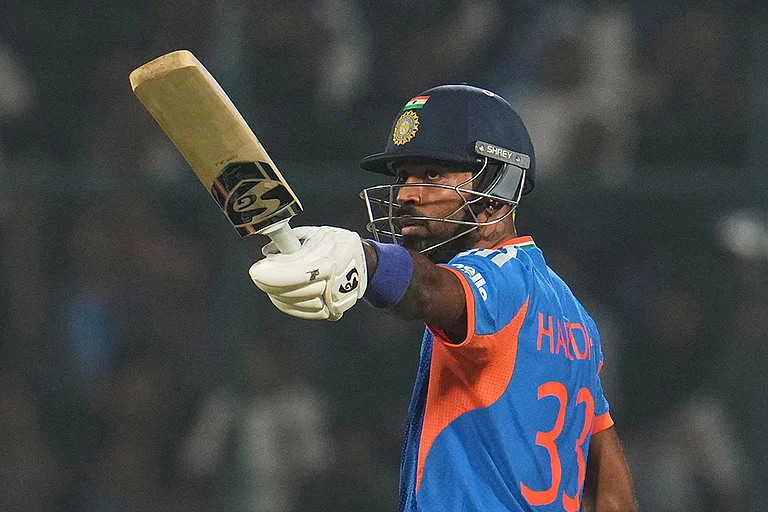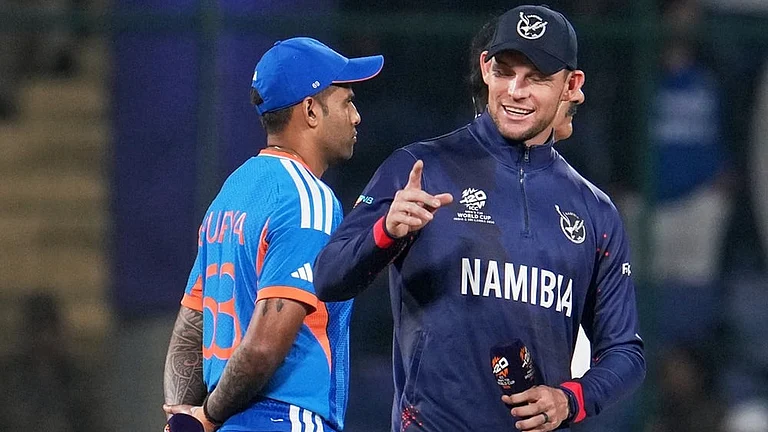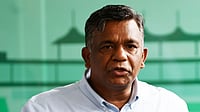KL Rahul couldn't afford to be fearless due to India's long tail and that is probably one of the biggest reasons for host country's World Cup final defeat against Australia, feels Pakistan legend Wasim Akram. (Cricket News)
Batting first, India posted a modest total of 240 in 50 overs and Rahul scored a painstaking 66 off 107 balls with a solitary boundary to his credit.
"If I have to pick any particular reason, I suppose the middle order should have played with a ‘do or die’ mindset. I can understand what was going through Rahul’s mind, that there was no batting to come after Jadeja and that he had to bat deep, and batting deep meant he couldn’t take risks of getting out," he told Star Sports.
Final was one game possibly when team missed all-rounder Hardik Pandya more than ever as he lends that balance in the middle-order with his power-hitting.
"If possibly Hardik was in the team, he (Rahul) probably would take that risk. But, if he had taken a risk and gotten out in this situation, then people would have criticised him for that as well," the 'Sultan of Swing' explained.
Not scoring quickly certainly became India's undoing.
"If they had kept pace and scored quickly in the middle overs, then it would have been a different ball game.”
For the 'Men in Blue', Rohit finished the tournament as the second-highest run-scorer after Virat Kohli, thanks to his attacking intent.
Meanwhile, Akram felt that captain Rohit Sharma was right to move ahead with his attacking approach in the final, as it is what had given him success throughout the tournament.
"He's played like that in the entire World Cup, that's his game. Nobody complained throughout the World Cup with the starts he's giving, or that he was constantly getting out in the 40s, and now that he's done the same in the finals, people are finding a reason to complain."
"And, he’s also one of the best players of spin in the world, though he got out to Maxwell in that game, and credit to Maxwell and Cummins. But, that's the nature of Rohit's game, and I don't think he should change it,” he added.
While defending the total, the Indians could manage to hold only four Australian wickets, with the pacers being the most effective ones on the Motera track.
Besides Jasprit Bumrah, who seized a couple of wickets, Mohammed Shami and Mohammed Siraj clutched a wicket each.
Also, during the Aussie chase, Shami was brought in during the powerplay, while Siraj was handed the duties only after the powerplay.
On the same note, Akram feels bringing in Siraj ahead of Shami could have worked better, given his ability to bowl economical spells.
“I found Siraj to be bowling really well throughout the World Cup, though his wickets column may not suggest that. But, the breakthroughs he gave in Asia Cup and his recent performances have established him as the future of Indian cricket," he continued.
"In this match, they straight away brought in Shami, and he did have impact on the game right away by getting Warner out, though it was more like Warner got himself out by slashing at a wide ball."
"Another factor is that after losing the three wickets within the first 15 overs, the dew set in, which made it easier for batting as the ball wasn't doing much after that."
Akram maintained that he didn't want to take any credit away from centurion Travis Head or Marnus Labuschagne.
"I'm not taking credit away from Australia’s batting, but it does psychologically affect the bowlers. I think in big games like the finals, teams should always stick to what they have been doing and what's been working for them," he concluded.


























